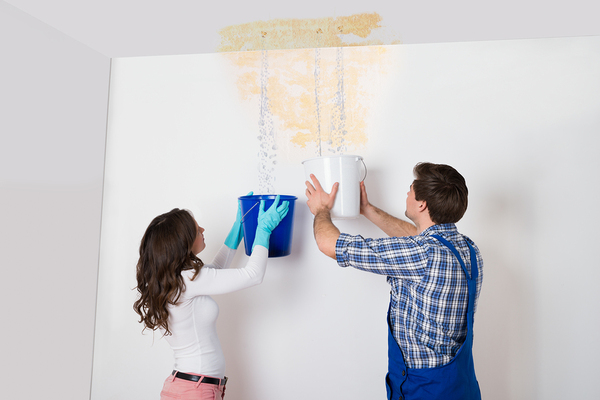Your Residential Most Typical Leak Factors: Analysis
Your Residential Most Typical Leak Factors: Analysis
Blog Article
How do you really feel in relation to How to detect water leaks in your home?

Leakages not just trigger waste of water yet can also create unnecessary damage to your house and promote undesirable organic growth. By looking as well as comprehending for day-to-day situations that cause leaks, you can secure your residence from future leakages and also unneeded damages.
Instantaneous temperature changes.
Extreme temperature changes in our pipelines can create them to increase and also acquire suddenly. This development and contraction may trigger splits in the pipelines, particularly if the temperature level are below freezing. It would certainly be best if you watched on how your plumbing functions. The existence of the previously mentioned circumstances often indicates a high threat.
Corroded water supply
As time passes by, your plumbing system ages as well as corrosion such as rust might start eating away the pipes. This could be the root cause of discoloration or bending on your water pipes. This asks for an assessment with your plumber quickly. If our plumbing system is old, take into consideration replacing the pipelines given that they go to a higher threat of rust than the newer versions.
Defective Pipe Joints
Pipeline joints can weaken over time, resulting in water leakages. If you have noisy pipelines that make ticking or banging sounds, especially when the warm water is turned on, your pipe joints are most likely under a great deal of stress.
Encroaching roots
A lot of water leaks start outside your home rather than inside it. If you see an abrupt decrease in water pressure, state in your faucet, require time to head out and analyze your yard. You may observe wet spots or sinkholes in your yard, and that might indicate that tree roots are getting into water lines creating water to seep out. You can have your plumber check for invasion, particularly if you have trees or bushes near your residential or commercial property.
Poor Water Connectors
At times, a leak can be triggered by loose hose pipes and also pipelines that provide your appliances. More often than not, changing is what creates the loosened water Connections. You could discover when it comes to a washing device, a hose may spring a leakage because of drinking during the spin cycle. In case of a water links leak, you may see water running straight from the supply line or puddles around your devices.
Obstructed Drains
Clogged drains pipes could be frustrating and inconveniencing, yet they can occasionally end up triggering an overflow causing break pipelines. Keep eliminating any products that might drop your drains that can block them to prevent such inconveniences.
All the above are sources of leaks however not all water leaks result from plumbing leaks; some leakages could originate from roof leakages. All leakages need to be repaired quickly to prevent water damage.
Leaks not just cause waste of water yet can also trigger unnecessary damages to your residence and also advertise undesirable natural growth. By understanding as well as looking for day-to-day situations that create leakages, you can secure your house from future leakages as well as unnecessary damage. Today, we will certainly look at 6 leakage causes that might be triggering your pipes to trickle.
At times, a leakage can be triggered by loose tubes as well as pipes that supply your home appliances. In instance of a water links leak, you may see water running directly from the supply line or pools around your devices.
How To Check For Water Leak In Your Home
How To Check for Leaks
The average household's leaks can account for nearly 10,000 gallons of water wasted every year and ten percent of homes have leaks that waste 90 gallons or more per day. Common types of leaks found in the home are worn toilet flappers, dripping faucets, and other leaking valves. These types of leaks are often easy to fix, requiring only a few tools and hardware that can pay for themselves in water savings. Fixing easily corrected household water leaks can save homeowners about 10 percent on their water bills.
To check for leaks in your home, you first need to determine whether you're wasting water and then identify the source of the leak. Here are some tips for finding leaks:
Take a look at your water usage during a colder month, such as January or February. If a family of four exceeds 12,000 gallons per month, there are serious leaks.
Check your water meter before and after a two-hour period when no water is being used. If the meter changes at all, you probably have a leak.
Identify toilet leaks by placing a drop of food coloring in the toilet tank. If any color shows up in the bowl after 10 minutes, you have a leak. (Be sure to flush immediately after the experiment to avoid staining the tank.)
Examine faucet gaskets and pipe fittings for any water on the outside of the pipe to check for surface leaks.
Undetected water leaks can happen without the home or business owner even realizing. If you suspect a water leak, but not able to find the source. It is time to contact a professional water leak detection service, The Leak Doctor.
How To Find a Water Leak In Your Home
https://www.leakdoctor.com/blog/How-To-Check-For-Water-Leak-In-Your-Home_AE197.html

As a fervent person who reads about Top Causes of Home Water Leaks, I assumed sharing that excerpt was a smart idea. Sharing is nice. Helping others is fun. Thanks a lot for going through it.
Premium plumbing emergency care here. Report this page